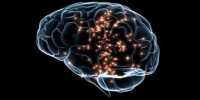Illegal drug use and excessive alcohol consumption can have a negative impact on your mental health, physical health, and relationships. Some persons who abuse alcohol or drugs develop an addiction. Addiction is a brain illness that can be treated. Certain substances may be more difficult to quit for women. When seeking treatment for alcohol or substance use disorders, women may also require assistance in locating services for child care or elder care.
Moderate alcohol use is unlikely to be detrimental for the majority of adults. However, around 18 million adult Americans suffer from an alcohol consumption disorder (AUD). This means that their drinking leads them to be distressed and harmed. Depending on the symptoms, AUD can range from mild to severe. Severe AUD is also known as alcoholism or alcohol dependence.
Researchers at the University of Missouri have created a new framework that they believe will aid in the identification of persons who have previously been missed for alcohol consumption disorder (AUD). This paradigm focuses on 13 risk characteristics that can contribute to AUD, including as impulsive behavior, reward sensitivity, and punishment sensitivity.
Decades of study have shown that there are many diverse paths to alcohol use disorder. So, in order to be most effective in detecting and treating AUD, we want to make sure that we are addressing people’s unique pathways as precisely as possible.
Cassie Boness
“Decades of study have shown that there are many diverse paths to alcohol use disorder,” said Cassie Boness, a former graduate student in the Department of Psychological Sciences at MU. “So, in order to be most effective in detecting and treating AUD, we want to make sure that we are addressing people’s unique pathways as precisely as possible.”
Boness has been interested in the origins, diagnosis, and assessment of drug use disorders, particularly AUD, a chronic medical illness defined by continued alcohol use despite negative effects, throughout her career. It’s personal for Boness; after witnessing her loved ones ridiculed for their alcoholism, and then watching them struggle to be linked with treatment, she wanted to help lessen the amount of misery people may endure with AUD.
While today’s assessment tools, such as the Diagnostic and Statistical Manual of Mental Disorders, Fifth Edition (DSM-5), can assist health care professionals in diagnosing AUD, Boness believes that current methods are too narrowly focused on the consequences of someone’s actions, rather than incorporating a broad list of potential risk factors that may lead to a AUD diagnosis.

Boness, who is currently a research assistant professor at the University of New Mexico, expects that their paradigm may pave the way for a more comprehensive diagnosis of AUD in the medical community. She emphasizes, however, that her tool is not intended to be the only solution, but rather a means for other academics like her to expand on and improve on previous studies on the subject.
“Alcoholism” is a term used to describe someone who is severely addicted to alcohol. Many times, it is used to describe someone who just drinks too much. However, alcoholism is more serious than simply having a poor weekend. Many of the symptoms indicated in the DSM-V criteria are present in people who are alcoholic. Whether you drink every day or only on weekends, if you drink more than you should or continue to drink despite the repercussions, you could be an alcoholic.
“Eventually, we’d like to see assessment tools that more completely capture the elements expressed in our framework so that we can identify individual risk profiles and maybe intervene during early phases of addiction,” said Boness.
Binge drinking is defined as drinking so much all at once that your blood alcohol concentration (BAC) is 0.08 percent or above. For a male, this usually happens after 5 or more beers in a short period of time. It happens after 4 or more drinks in a few hours for a lady. Not everyone who binges drinks has an AUD, but they are more likely to get one.
It is harmful to consume too much alcohol. Heavy drinking has been linked to an increased risk of certain malignancies. It can cause liver illnesses such fatty liver disease and cirrhosis. It can potentially harm the brain and other vital organs. Drinking while pregnant can be harmful to your kid. Alcohol also raises the risk of dying in automobile accidents, injuries, homicide, and suicide.
















